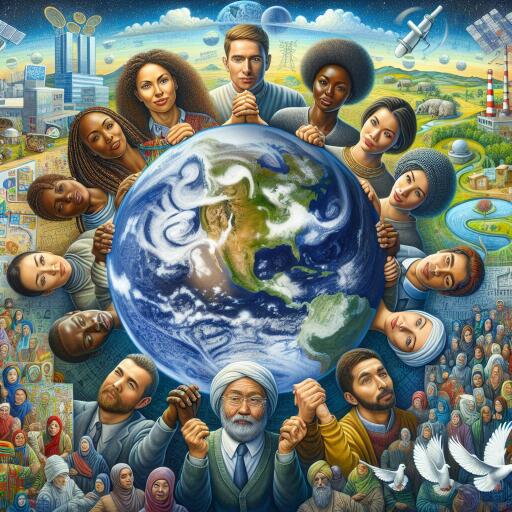
Earth Today | Equity a Must
The recent United Nations climate change negotiations, COP29, have laid bare the widening chasm between the Global North and South. This divide becomes particularly poignant as small island developing states (SIDS) and the least developed countries (LDCs) continue to bear the harshest impacts of climate change.
During the “Coming Back from COP29” summit, held on December 17 in Port of Spain, Trinidad and Tobago, critical discussions were led by Climate Analytics Caribbean. Topics included finance, adaptation, loss and damage, and just transition, all within the pressing context of the growing climate crises. The summit highlighted the urgent necessity for equitable climate action.
“This was by far the most challenging COP we’ve encountered, accentuating the divide between developed and developing nations,” remarked a representative of Climate Analytics Caribbean in a news release on December 19.
The discussions stressed a persistent question: How do we effectively phase out fossil fuels and methane to fulfill the global agreement of capping warming at a 1.5 degrees Celsius rise?
The Financial Divide
Referred to as ‘the Finance COP,’ COP29 was one of the most arduous negotiations to date, dominated by polarising debates on climate finance. Although a new climate finance target of US$300 billion, named the New Collective Quantified Goal (NCQG), was agreed upon, it fell drastically short of the US$1.3 trillion call from small island states. This was considered necessary to adequately tackle mitigation, adaptation, and loss and damage, with concerns regarding the accessibility and quality of funds.
The hesitation of developed countries to redefine climate finance and establish minimum allocations for vulnerable nations indicated a recurring equity gap.
Adaptation on the Agenda
Adaptation emerged as a cautiously optimistic aspect, with plans to double adaptation finance by 2025 and streamline Global Goal on Adaptation (GGA) indicators to fewer than 100. This indicator streamlining, paired with new adaptation frameworks introduced by the United Arab Emirates focusing on resilience and thematic targets, provides a potential roadmap for enhancing adaptation efforts. The institutionalization of adaptation as a standing agenda item at COP meetings signals a significant advancement for SIDS and LDCs.
Loss and Damage: Challenges Ahead
Though a dedicated Loss and Damage (L&D) Fund has been established, its functionality is hampered by the absence of a resource mobilization strategy or access mechanisms. The emphasis by SIDS on a standardized approach to defining and assessing L&D, particularly for gradual events like sea-level rise, is crucial for ensuring effective financing solutions.
The Just Transition Impasse
The discussion surrounding a just transition faced a stalemate, as the Just Transition Work Programme (JTWP) was deferred, highlighting the diverging perspectives between developed and developing nations. While developed countries tend to see just transition as a domestic issue, SIDS and LDCs stress its global scope and implications for climate justice. This lack of agreement underscores the critical need for inclusive strategies that prioritize skills development and equity.
As the world moves towards COP30, these discussions highlight the urgent need for equitable climate action that bridges the gap between developed and developing nations. Addressing this equity is crucial to achieving a climate-safe and sustainable future for all.
The outcomes of COP29 highlight an imperative call for a shift towards a more inclusive approach to combat climate change, focusing on the fair distribution of resources and responsibilities. As the pressure mounts towards COP30, the collective focus must be on ensuring climate justice and equitable solutions for all nations.





Leave a Reply